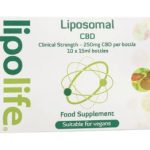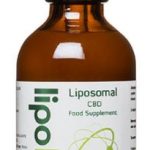In many societies and communities throughout the world, marijuana and cannabis are dirty words. In one way, that’s entirely understandable. The use of cannabis oil to create marijuana as a recreational drug has been popular for decades, but is rightly heavily regulated – in many places it remains illegal – not least as it’s inevitably used as a gateway to even stronger and more dangerous drugs. However, cannabis’s use in the creation of medical marijuana – and the use of the latter – is a different kettle of fish, but no less a political and legal hot potato. For many, it’s cannabis/ marijuana full-stop and should simply be illegal; for others, although related to and associated with recreational marijuana, it’s produced for quite a different purpose and can do its users untold good and, for that reason, there should be no impediment to its legal production and consumption.
The undeniable reality – based on hard evidence – is that a prominent compound found in cannabis/ marijuana, namely cannabidiol (CBD), is of great benefit to the health of the human body; indeed, it’s proven to be able to help treat several different ailments and diseases. So much so, in fact, that nowadays CBD’s available as a naturally-derived nutritional supplement; one that’s highly recommended simply because the entirely benign and hugely beneficial nature of CBD should not – and cannot – be ignored any longer.
First things first, though; CBD has nothing to do with THD and doesn’t have the same effect on people when it’s consumed. It’s true that they’re both cannabinoids – the class of ingredients that are unique to the Cannabis sativa plant, but it’s only the infamous THD (or tetrahydrocannbinol, to call it by its full name) that has mind-altering effects in users; CBD doesn’t at all. Indeed, CBD is the major non-psychoactive ingredient in Cannabis sativa, hence its enormous suitability as the source for health-providing supplements.
But what of those health-providing properties? Well, according to a 2013 study, it appears that CBD has anti-inflammatory, anti-convulsant, anxiolytic and antioxidant properties, ensuring it has the capacity to help treat the likes of oxidative injury, epilepsy, vomiting and nausea, neuroinflammation and anxiety1.
In which case then, let’s take a closer look at some of these significant CBD health benefits…
- Anxiety – as noted, CBD appears to possess anxiolytic (anxiety-reducing) effects. Indeed, research published in 2012 confirms that the cannabinoid can help treat patients with social anxiety disorder and may be effective for those suffering from obsessive compulsive disorder (OCD), panic disorder and post-traumatic stress disorder2.
Moreover, a study published the year before found that, among social disorder sufferers, CBD pre-treatment significantly reduced their anxiety, cognitive impairment and discomfort during a public speaking exercise3.
- Cardiovascular health – when it comes to the health of the heart and blood vessels, it appears that CBD may help protect against vascular damage caused by consumption of high-glucose foods, inflammation and type 2 diabetes; plus, evidence suggests it can play a significant role in reducing associated vascular hyperpermeability (a cause of leaky gut in the digestive system)4.
- Diabetes – results from a study conducted in 2006 showed a significant reduction of diabetes among non-obese diabetic mice (diabetes occurred in just 30% of those treated with CBD, but occurred in 86% of those not treated); while treated mice also experienced considerably reduced insulitis5.
Additionally, the 2005-10 National Health and Nutritional Survey – conducted on adults in the United States – discovered that marijuana-use (and, thus, consumption of CBD) was associated with 16% lower fasting insulin levels among the more then 4,500 participants6.
- Nausea and vomiting – like it or not, cannabis has a long, centuries-long history of use in societies for treating – and, therefore, suppressing – nausea and vomiting; among around 80 other cannabinoids, CBD has been proved by animal studies to be effective at reducing or eliminating them both (a 2012 study discovered it possessed anti-nausea and antiemetic properties when administered to rats7).
It should be noted, however, that CBD appears to behave in a diphasic fashion in this area; low doses suppress vomiting induced by toxins, while high doses appear to do the opposite or have no effect at all.
- Pain and inflammation – as with many so-called synthetic painkillers, CBD may prove effective in modulating pain thanks to its ability to inhibit neuronal transmission via pain pathways; for instance, recent research found it successfully suppressed chronic inflammation and neuropathic pain in rodents8, while a 2007 study discovered that CBD (together with the entirely legal THC buccal spray) was effective as a treatment for neuropathic pain among sufferers of multiple sclerosis9.
- Seizures – a 2014 Stanford University survey into epilepsy and use of CBD-enriched cannabis saw an 84% drop in seizures among children, among whom 42% enjoyed more than an 80% reduction; the study also found further beneficial effects of CBD cannabis among sufferers, including increased alertness, improved mood and better sleep, although drowsiness and fatigue were reported as side-effects10.
In the same year, another child-based study – involving sufferers of treatment-resistant epilepsy – revealed that nearly one in four (39%) of those who received an oil-based CBD extract experienced a 50% seizure reduction after three months11.
- Other benefits – it appears that, along with other cannabinoids, CBD is effective in modulating central nervous system (CNS) excitability and the immune system’s response to this condition12, 13, while further research suggests that it can enhance both musculoskeletal system function and joint health14.
Supplements
So then, as has hopefully now been made clear, CBD in supplement form offers many important benefits for your health. To that end, you may be interested to learn that here at The Finchley Clinic we can now offer you a pair of CBD supplements that, via the dynamically advanced, liposomal nutritional-delivery process, ensure you’ll receive the greatest possible health value and support from cannabidiol:
Liposomal CBD – Professional Strength – derived from ethically sourced hemp (with a mix of sativa and indica), this supplement is the best quality, most absorbable European liposomal CBD product available; it’s said to be up to six times better absorbed than regular CBD oil containing the same amount of cannabinoids.
Liposomal CBD (60mg) – the 60ml version of this new class of bio-available supplement; making use of state-of-the-art, nano-particle technology to ensure much higher absorption than comparative products, it offers the full spectrum of CBD via CO2 extraction.
References:
- Fernández-Ruiz J., Sagredo O., Pazos M. R., García C., Pertwee R., Mechoulam R. and Martínez-Orgado J. ‘Cannabidiol for neurodegenerative disorders: important new clinical applications for this phytocannabinoid?’. Br J Clin Pharmacol. Feb 2013; 75 (2): 323-33.
- Schier A. R., Ribeiro N. P., Silva A. C., Hallak J. E., Crippa J. A., Nardi A. E. and Zuardi A. W. ‘Cannabidiol, a Cannabis sativa constituent, as an anxiolytic drug’. Rev Bras Psiquiatr. Jun 2012; 34 Suppl 1: 104-10.
- Bergamaschi M. M. et al. ‘Cannabidiol Reduces the Anxiety Induced by Simulated Public Speaking in Treatment-Naïve Social Phobia Patients’. Neuropsychopharmacology. May 2011; 36 (6): 1,219–1226.
- Stanley C. P., Hind W. H. and O’Sullivan S. E. ‘Is the cardiovascular system a therapeutic target for cannabidiol?’. Br J Clin Pharmacol. Feb 2013; 75 (2): 313-22.
- Weiss L., Zeira M., Reich S., Har-Noy M., Mechoulam R., Slavin S. and Gallily R. ‘Cannabidiol lowers incidence of diabetes in non-obese diabetic mice’. Autoimmunity. Mar 2006; 39 (2): 143-51.
- Penner E. A., Buettner H. and Mittleman, M. A. ‘The Impact of Marijuana Use on Glucose, Insulin, and Insulin Resistance among US Adults’. Amjmed. Jul 2013; 126 (7): 583–589.
- Rock E. M. et al. ‘Cannabidiol, a non-psychotropic component of cannabis, attenuates vomiting and nausea-like behaviour via indirect agonism of 5-HT(1A) somatodendritic autoreceptors in the dorsal raphe nucleus’. Br J Pharmacol. Apr 2012; 165 (8): 2,620-34.
- Xiong W. ‘Cannabinoids suppress inflammatory and neuropathic pain by targeting α3 glycine receptors’. J Exp Med. Jun 2012; 209 (6): 1,121-34.
- Iskedjian M., Bereza B., Gordon A., Piwko C. and Einarson T. R. ‘Meta-analysis of cannabis based treatments for neuropathic and multiple sclerosis-related pain’. Curr Med Res Opin. Jan 2007; 23 (1): 17-24.
- Porter B. E. and Jacobson C. ‘Report of a parent survey of cannabidiol-enriched cannabis use in pediatric treatment-resistant epilepsy’. Epilepsy Behav. Dec 2013; 29 (3): 574–577.
- Devinsky O. et al. ‘Efficacy and safety of Epidiolex (Cannabidiol) in children and young adults with treatment-resistant epilepsy: initial data from an expanded program’. American Epilepsy Society. Abst. 3.303. 2014.
- Resstel L. B. et al. ‘5-HT1A receptors are involved in the cannabidiol-induced attenuation of behavioural and cardiovascular responses to acute restraint stress in rats’. Br J Pharmacol. Jan 2009; 156 (1): 181-8.
- Costa B. et al. ‘The non-psychoactive cannabis constituent cannabidiol is an orally effective therapeutic agent in rat chronic inflammatory and neuropathic pain’. Eur J Pharmacol. Feb 2007; 556 (1-3): 75-83.
- Malfait A. M. et al. ‘The nonpsychoactive cannabis constituent cannabidiol is an oral anti-arthritic therapeutic in murine collagen-induced arthritis’. Proc Natl Acad Sci USA. Aug 2000; 97 (17): 9,561-6.


